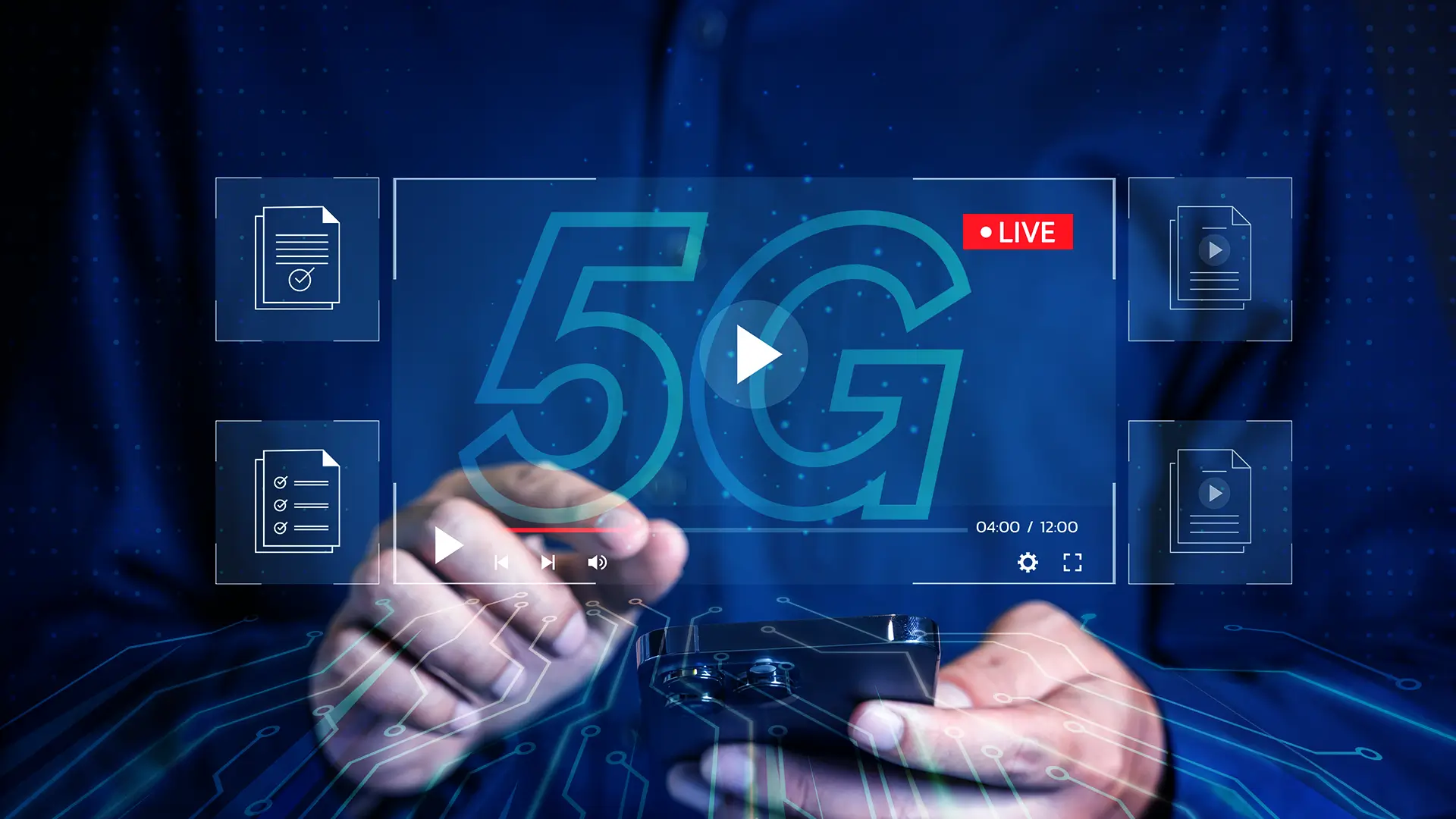AI-Powered Key Takeaways
In mobile app development, keeping up with the latest advancements in testing tools is crucial. A significant upgrade in automation testing is the release of Appium 2.0. With its myriad enhancements and new features, migrating to Appium 2 is essential for teams aiming to maintain a competitive edge. This Appium 2.0 Migration blog will guide you through the transition, ensuring you harness the full potential of Appium 2 advancements while minimizing disruption to your automation testing workflows.
Introduction to Appium 2.0
Appium 2.0 represents a significant leap forward in mobile automation testing, offering developers and testers a more modular, flexible, and powerful toolset. The transition from Appium 1.x to Appium 2 is an upgrade and a necessary migration to leverage the latest mobile automation testing technology. This guide is designed to assist you in planning and executing a seamless Appium 2 migration.
Key Appium 2 Advancements
Appium 2.0 is a simple update and a shift in how developers approach mobile automation testing. The key advancements in Appium 2.0 make it a far more powerful and flexible tool than its predecessor. These advancements address some of the most common pain points experienced by testers and developers using Appium 1.x, resulting in a better-equipped toolset to handle the complexities of modern mobile applications. Let’s delve into the major advancements that Appium 2.0 brings to the table:
1. Modular Architecture
One of the most significant changes in Appium 2.0 is the introduction of a modular architecture. Unlike Appium 1.x, a monolithic application, Appium 2 is designed with modularity. This modular architecture means that the core of Appium 2 is leaner and more efficient, while additional functionality can be added through a wide range of modules, plugins, and drivers.
- Ease of Maintenance: The modular structure makes maintenance and updating more straightforward. Developers can update individual modules or replace them without affecting the entire system.
- Plugin Ecosystem: Appium 2.0 introduces a plugin ecosystem, allowing users to extend the functionality of Appium without modifying the core. As new testing needs arise or technologies emerge, the community can develop plugins that keep Appium at the forefront of mobile testing innovation.
2. Enhanced Parallelization and Performance
Performance has always been a critical factor in automation testing, and Appium 2.0 addresses this with significant improvements in parallelization.
- Concurrent Test Execution: Appium 2 advancements include better support for running tests in parallel across multiple devices and platforms. This enhanced parallelization capability reduces the time required to execute test suites, leading to faster feedback cycles and release times.
- Resource Optimization: Appium 2.0's architecture is optimized to manage system resources better, especially when handling large-scale test operations. This optimization results in faster execution times and more efficient use of hardware resources.
3. Broader Platform and Device Support
The mobile ecosystem is vast and constantly evolving, with new devices, operating systems, and features regularly introduced. Appium 2.0 has been designed to stay ahead of these changes by offering broader platform and device support.
- New Drivers and Plugins: Appium 2.0's modular nature makes introducing support for new platforms and devices easier. Whether it’s a new version of Android, iOS, or emerging operating systems, the Appium community can quickly develop and integrate new drivers, ensuring that testers can always stay up to date.
- Cross-Platform Flexibility: Appium 2.0’s advancements make it more adept at handling cross-platform testing scenarios. Whether you’re testing an app on Android, iOS, or even more niche platforms, Appium 2 ensures consistent performance and reliability across the board.
Preparing for the Appium 2 Migration
Preparing for the Appium 2 migration is a critical phase that requires a comprehensive understanding of your current automation testing environment, thorough planning, and careful execution. A well-prepared migration strategy will help you avoid pitfalls, ensure continuity in your testing processes, and fully take advantage of Appium 2 advancements.
1. Assessing Your Current Testing Setup
The first step in preparing for the Appium 2 migration is to conduct a detailed assessment of your existing automation testing setup. This assessment should cover all aspects of your testing environment, including the following:
- Test Scripts and Frameworks: Review your current test scripts and frameworks to identify any dependencies that might be affected by the migration. Check for hardcoded paths, deprecated functions, or any elements requiring modification in Appium 2.
- Infrastructure: Examine your testing infrastructure, including servers, CI/CD pipelines, and device labs. Ensure that your infrastructure is compatible with the new requirements introduced by Appium 2.
- Drivers and Plugins: Identify the drivers and plugins currently in use. Appium 2 introduces a modular architecture that may require updating or replacing certain components. Make a list of all the drivers and plugins that must be updated, ensuring they are compatible with Appium 2 advancements.
2. Creating a Migration Plan
Once you clearly understand your current environment, create a migration plan. This plan should outline the migration process, including timelines, resource allocation, and risk management strategies. Key elements include:
- Resource Allocation: Identify the team members responsible for different aspects of the migration, such as updating test scripts, configuring the infrastructure, and testing the new setup.
- Testing Strategy: Define a testing strategy for the migration process. This should include functional and performance testing to verify that Appium 2 advancements are working as expected. Consider using a staging environment before deploying it in production.
- Rollback Strategy: Develop a rollback strategy in case issues arise during the migration. This could involve maintaining a stable Appium 1.x environment while gradually transitioning to Appium 2. A rollback plan ensures you can revert to the previous setup without disrupting your automation testing processes.
3. Preparing the Environment for Migration
Before starting the migration, preparing your testing environment to ensure a smooth transition is essential. This preparation involves several key steps:
- Set Up a Staging Environment: Set up your staging environment to mirror your production environment. This allows you to test the migration without affecting your live testing processes. Use the environment to locate and fix any compatibility issues or bugs.
- Update Dependencies: Ensure that all dependencies, such as drivers, plugins, and libraries, are updated to versions compatible with Appium 2.
Read: A Step-by-Step Guide to Test Automation with Appium
Executing the Appium 2 Migration
Step 1: Parallel Installation of Appium 2
The first step in executing the Appium 2 migration is to install Appium 2 alongside your existing Appium 1.x setup. This parallel installation allows you to run both versions simultaneously, which is crucial for testing and validating your migration process without disrupting your current automation testing operations. By maintaining both versions in parallel, you can gradually introduce Appium 2 while continuing to rely on your stable Appium 1.x environment.
To achieve this, you can use version managers like nvm for Node.js to handle multiple versions of Appium. This setup ensures that your test environment remains stable while you test the new features and modifications in Appium 2. It's essential to document any differences in the installation process and configurations between the two versions, as these may impact your existing setup.
Step 2: Update and Modify Test Scripts
Appium 2 introduces several changes in its API and functionality that may require updates to your existing test scripts. During this step, you need to review your current test scripts and identify any areas that need modification to work with Appium 2. This process may involve updating command syntax, altering desired capabilities, or refactoring test logic to align with the new architecture of Appium 2.
It’s also essential to test your scripts incrementally as you make changes, ensuring each update functions as expected before moving on to the next. By testing incrementally, you can quickly identify and address issues, reducing the risk of major problems later in the migration process.
Step 3: Install and Configure Necessary Modules and Plugins
One of Appium 2's significant advancements is its modular architecture, which allows for a highly customizable and extendable testing environment. During the migration, you must identify and install the necessary modules, plugins, and drivers that match your current testing requirements. This might include specific drivers for different platforms (e.g., iOS, Android) and any custom plugins your team has developed or relies upon.
Configuring these modules correctly is critical to ensuring that your tests run smoothly. Each module or plugin might have its own set of configurations and dependencies, so it's essential to refer to the official documentation and verify that each component is correctly set up. Be mindful of any compatibility issues between different modules and ensure they align with the latest Appium 2 advancements.
Step 4: Perform Comprehensive Testing
With your Appium 2 setup in place, the next step is to perform comprehensive testing across all your existing test cases. This testing should include functional, integration, and performance testing to ensure that your migration has not introduced any regressions or issues. Testing should be conducted on all the platforms and devices you currently support, leveraging Appium 2's expanded capabilities to cover a wider range of test scenarios.
Pay close attention to test results during this phase, looking for any discrepancies or failures that could indicate a problem with the migration. It’s advisable to use continuous integration (CI) tools to automate this testing process, allowing you to iterate on any issues that arise quickly. Automated testing will also provide valuable feedback and help you maintain high confidence in your migrated test suite.
Step 5: Gradual Rollout and Monitoring
After thorough testing, you can begin the gradual rollout of Appium 2 across your testing environments. Start by deploying Appium 2 in a staging environment that mirrors your production setup. This allows you to monitor the new setup's behavior in a controlled environment before fully committing to the migration.
During the rollout, closely monitor the performance and reliability of your tests. Utilize logging and monitoring tools to capture detailed data on how Appium 2 is performing and identify potential issues that could impact your production environment. This data is invaluable for fine-tuning your setup and ensuring the migration is as smooth as possible.
Step 6: Full Production Deployment
Once you have validated Appium 2's performance and stability in your staging environment, you can proceed with a full production deployment. You can deprecate your Appium 1.x setup and transition entirely to Appium 2 for all your automation testing needs. Ensure that your team is prepared with all necessary training and documentation.
Step 7: Post-Deployment Review and Optimization
After completing the migration, conduct a thorough post-deployment review to assess the transition's overall success. This review should include feedback from the testing team, an analysis of test execution metrics, and an evaluation of Appium 2's new features and capabilities. Use this review to identify any areas for further optimization or improvement, ensuring you fully leverage the benefits of Appium 2 advancements.
Consider setting up regular review sessions to revisit your Appium 2 setup and make adjustments as needed. Continuous optimization will help you avoid potential challenges and align your automation testing suite with evolving mobile app development demands.
Also read: What is Appium Inspector? - A Guide
How the HeadSpin Platform Can Help
Seamless Integration with Appium 2
One of the key advantages of the HeadSpin Platform is its seamless integration with Appium 2. Whether running tests on iOS, Android, or other platforms, HeadSpin supports various devices and operating systems, ensuring your Appium 2 testing environment is as robust and versatile as possible. This integration allows you to migrate your existing test cases to Appium 2 without sacrificing functionality or compatibility.
Comprehensive Real-Device Testing
A significant challenge in mobile app testing is ensuring your application performs well across various devices and real-world conditions. The HeadSpin Platform provides access to a global device cloud, allowing you to test on real devices under real network conditions.
Advanced Analytics and Performance Monitoring
Another key feature of the HeadSpin Platform is its advanced analytics and performance monitoring capabilities. As you transition to Appium 2, it’s essential to ensure that your test suite is functional and optimized for performance. HeadSpin’s analytics tools provide detailed insights into every aspect of your tests, from execution times to resource utilization.
Scalability and Flexibility
As your testing needs grow, the HeadSpin Platform offers scalability and flexibility. Whether you need to run more tests concurrently or expand your testing to new platforms and devices, HeadSpin can scale to meet your needs. This flexibility is particularly important when migrating to Appium 2, as it allows you to gradually expand your platform use while maintaining control over your testing processes.
Conclusion
Migrating to Appium 2 is a crucial step. With its modular architecture, improved performance, and broader platform support, Appium 2 advancements offer significant benefits for automation testing. The steps in this guide can ensure a smooth and successful Appium 2 migration, positioning your team to take full advantage of the latest mobile automation testing technology.
FAQs
Q1. What are the key differences between Appium 1.x and Appium 2?
Ans: Appium 2 introduces a modular architecture, improved parallelization, better performance, and expanded platform support. These advancements make it more flexible, customizable, and capable of handling modern mobile environments.
Q2. Do I need to rewrite my test scripts when migrating to Appium 2?
Ans: While many test scripts will continue to work, some adjustments may be necessary to accommodate changes in API or functionality introduced by Appium 2 advancements. Testing in a staging environment is recommended.
Q3. Can I run Appium 1.x and Appium 2 side by side?
Ans: You can install Appium 2 alongside Appium 1.x to allow for parallel testing. This approach is useful for gradually transitioning your automation testing suite to the new version.


























.png)


























-1280X720-Final-2.jpg)






